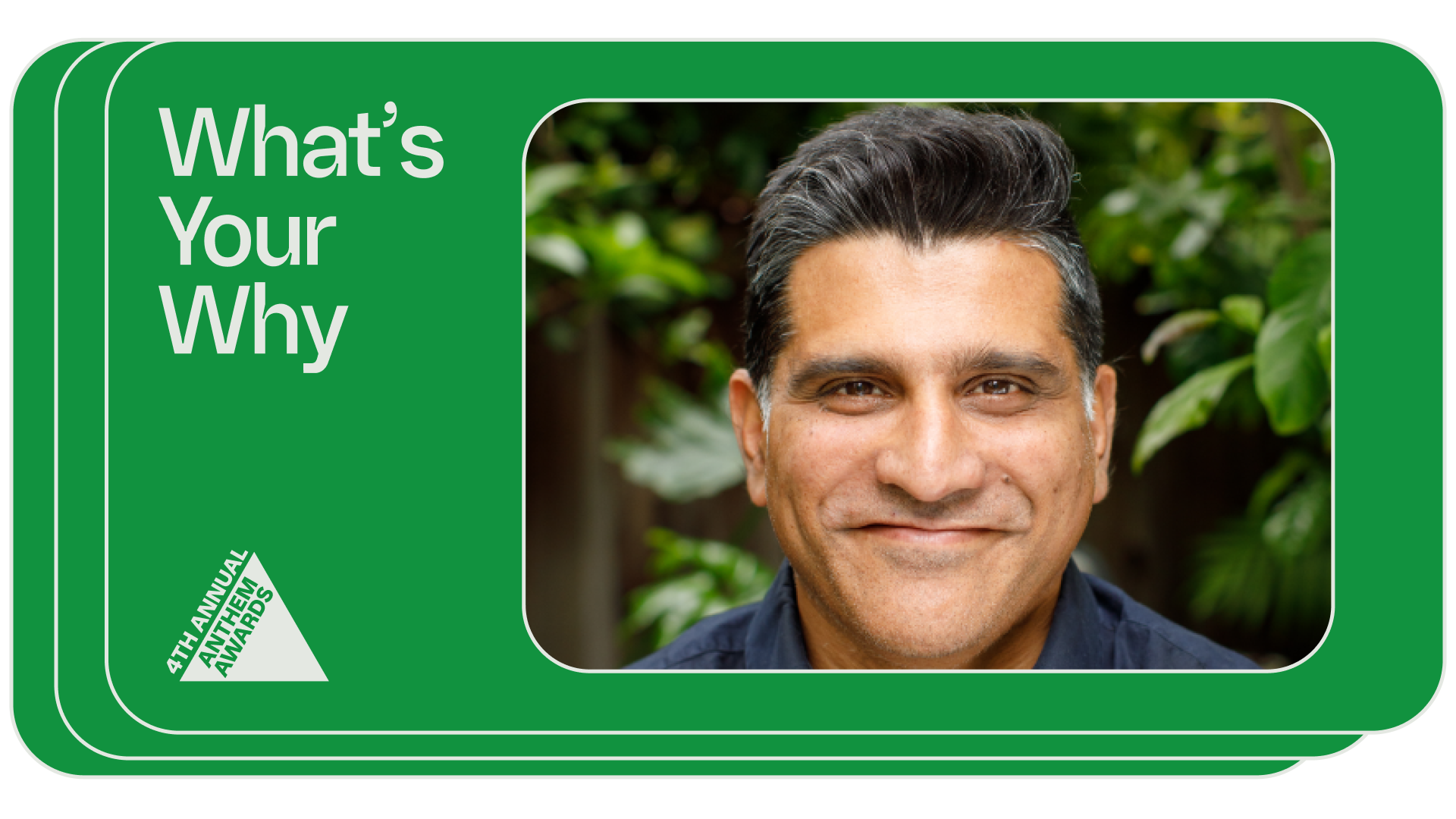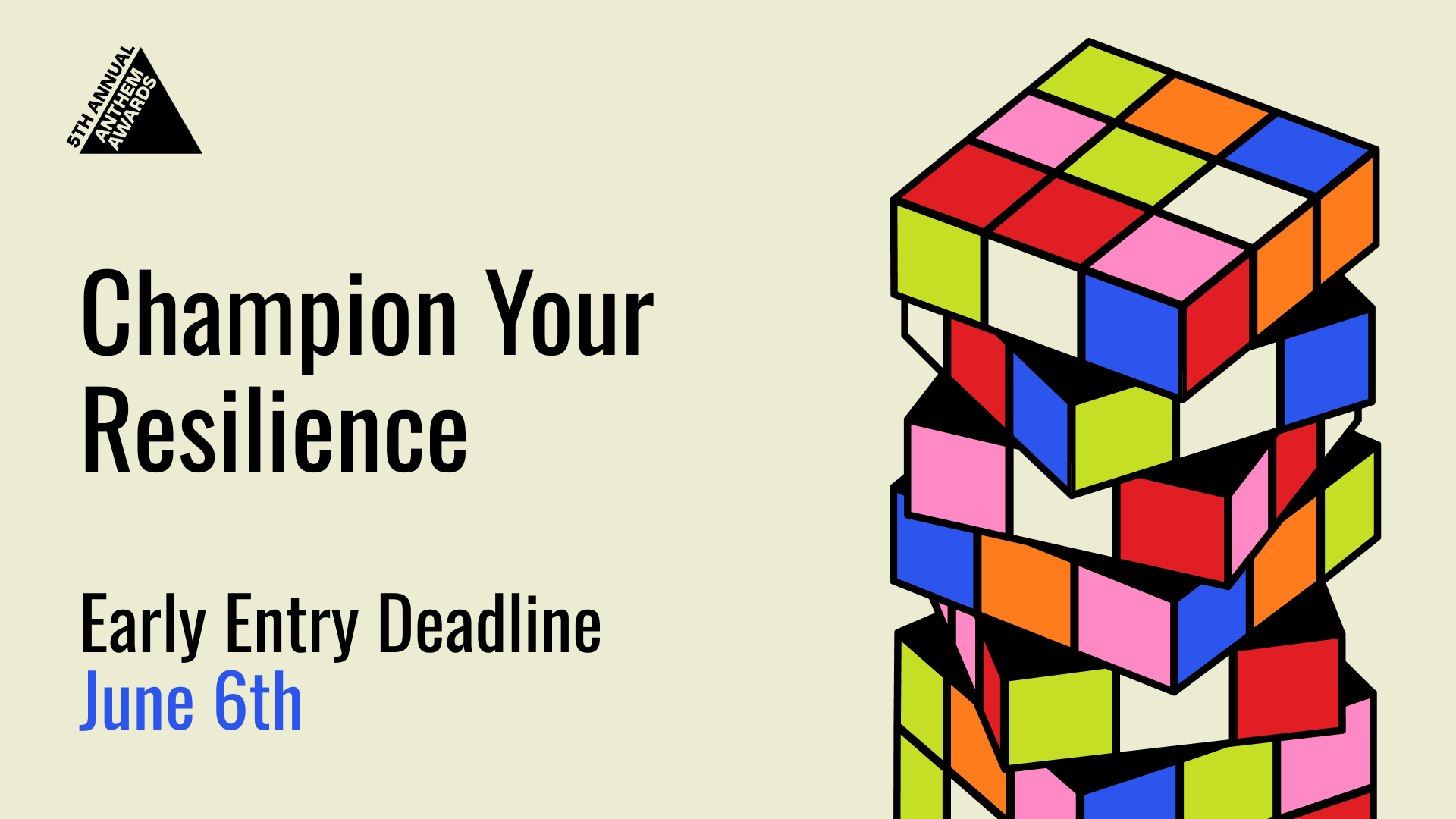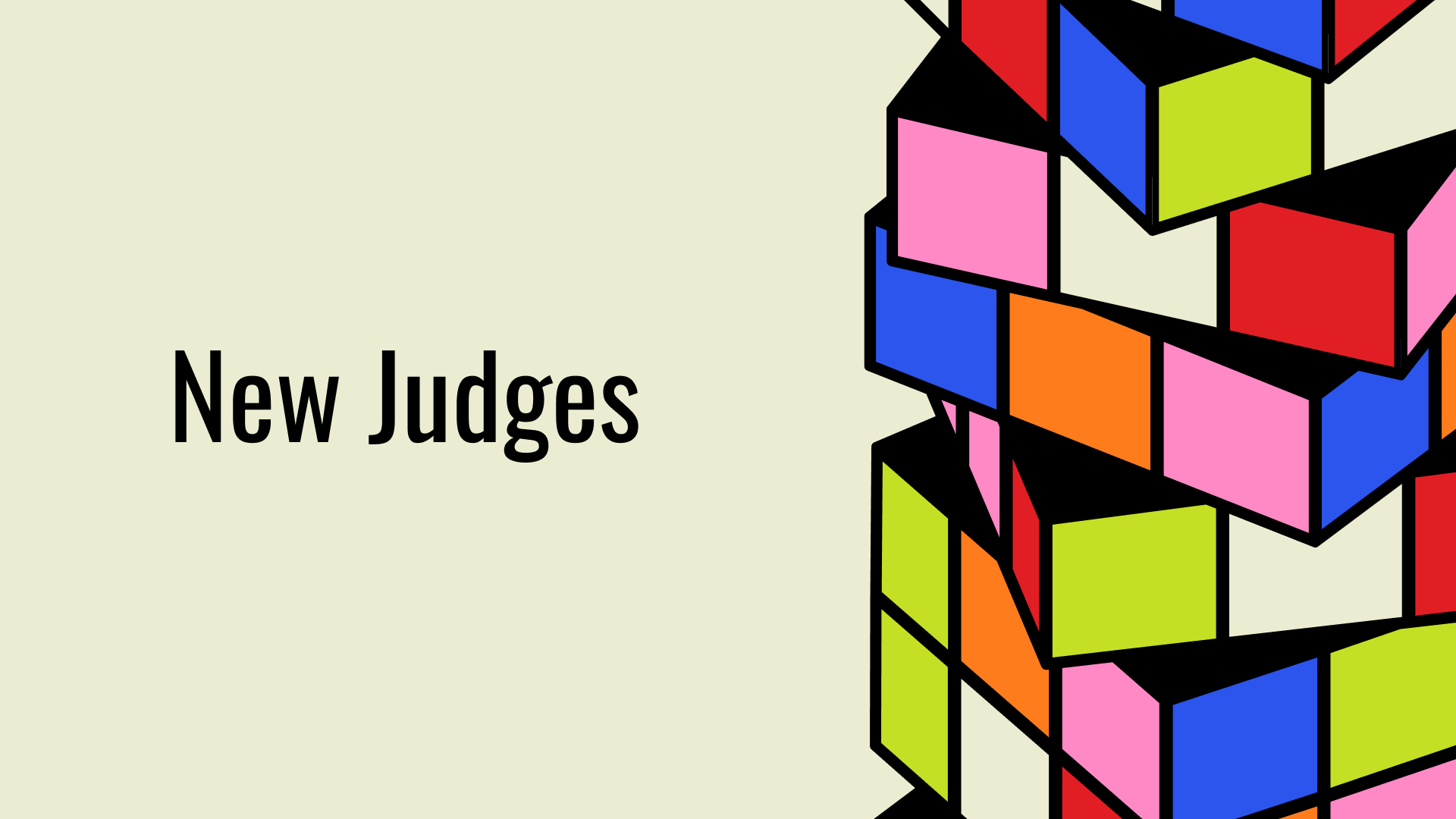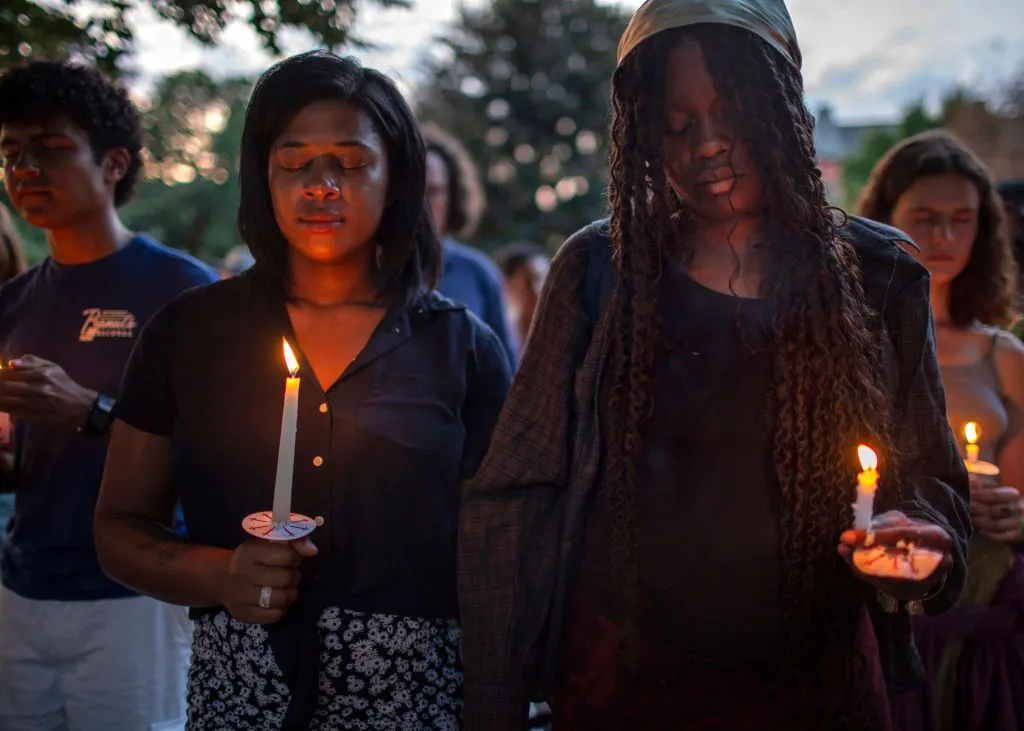On Breaking Down Barriers to Financial Freedom
From gender inequities to systemic inequality, there are numerous barriers to economic freedom. We spoke with the mind at the helm of Kiva, the global donation platform, to explore what fuels his fight to expand financial access to millions.

What’s Your Why is a series by The Anthem Awards team. We’re asking Anthem Winners and Judges to explore the guiding principles that have and continue to shape their journeys in social impact.
Systemic issues demand systemic solutions. When centuries-old barriers obstruct every path out of poverty, the only way to tackle financial inequality is to direct resources to where they matter most. The international crowdfunding organization Kiva is fighting persistently to do just that.
What began with a modest $500 loan to support a fish-mongering business in Uganda has evolved into a global movement dedicated to enhancing lives through crowdfunded loans. Understanding opportunity as the key factor to reaching economic equity, Kiva fosters a platform that provides marginalized communities with resources to achieve financial freedom.
Read on to discover what drives Vishal Ghotge, CEO of Kiva, in his unwavering commitment to combating systemic poverty.
Can you tell us a bit about the work you do? How long have you been working in social impact?
At Kiva, I have the honor of leading an organization that is dedicated to ensuring everyone in the world has the financial resources they need to thrive. We work to support farmers, artisans, entrepreneurs, and social enterprises all over the world through crowdfunded loans. Each day at work, I get to witness the magic of collective action, as millions of individual supporters and hundreds of organizations come together and pool their money to make these loans possible. I’ve been leading Kiva for the past 18 months and I’m thrilled to apply my background and skills in tech and product development to advance social impact work and address the gaps that exist in financial inclusion.
Why were you drawn to this cause or social issue? Do you have a memory or moment that sparked your interest?
Growing up in India, I saw firsthand that dreams and hard work are universal, but opportunity is not. Witnessing poverty up close lays bare the unfairness that is present in the world and the uncontrollable factors that prevent people from escaping the cycles of poverty. Access to resources is not equitable, and that is something many of us who live in countries with developed economies take for granted.
I’m wholeheartedly inspired by Kiva’s mission because we’re moving critical resources into communities like the ones I saw growing up, and we’re doing it in a way that invites anyone to join us in this work. No matter how big or small, each person and organization can be part of the solution that extends the opportunity to see their dreams turn into reality. Being part of a movement and global community that helps solve the very problem I saw so prevalent in my youth gives me a sense of purpose and joy.
“I think there is immense value in individuals with a variety of skills and experiences crossing into the nonprofit sector, as many of the ideas and approaches can contribute greatly to some of our world’s most pressing challenges.”
What background or lens do you bring to this space? How do they shape the way you tackle projects or initiatives?
I’ve been excited to see the positive impacts my background in tech and product development is having on the work of expanding global good. I think there is immense value in individuals with a variety of skills and experiences crossing into the nonprofit sector, as many of the ideas and approaches can contribute greatly to some of our world’s most pressing challenges. Building products and marketplace experiences is all about understanding human behavior, recognizing frustration and opportunity points, and creating solutions, and that problem-solving mentality, when paired with social impact, can be incredibly valuable. Applying that thinking to our mission of extending financial access to people in some of the most rural, economically disadvantaged places in the world is an incredibly meaningful and fulfilling challenge.
Who do you do this work for? Which communities are you interested in uplifting through your projects and why?
In today’s world, many of us take financial basics for granted. Things like a bank account, savings account, insurance, and being able to take out a loan are important services that support our ability to start or grow a business, secure, stable housing, feed our families, or see ourselves through the unexpected trials that life presents. But if you are a farmer in Kenya, a fisherman in the Philippines, or a refugee in Palestine, you may not have these options readily available, particularly options that are affordable and safe.
With Kiva, our goal is to help people access these services, whether it be a farmer, a fisherman, or a refugee, so that they can pursue their dreams of starting a business or receiving the support they need to tackle the effects of climate change.
Specifically, there are four communities that Kiva is focused on—underbanked women, people affected by climate change, refugees, and marginalized communities in the U.S. These communities exist at the intersection of the highest need and where Kiva can make the biggest impact based on the outcomes we’ve seen from our work over the past nearly 20 years.
In social impact, the work is long and the road isn’t easy. What is your North Star, principle or philosophy that keeps you going? What keeps you rooted?
In 19 years, Kiva’s global community of lenders have reached five million people in over 75 countries. Kiva loan recipients are entrepreneurs, farmers, artisans, teachers, shop owners, and more, and five million more now have financial support that they otherwise might not have had. While this reach is inspiring, there are still over a billion people in the world who don’t have adequate financial access, so we have a long way to go to achieve our mission.
What keeps me going are the stories of success and the generosity of the individuals and partners we work with each day. Meeting entrepreneurs in person and hearing first-hand how their lives have been improved by their Kiva loan, seeing the tireless work of our local partners whose support is invaluable, and interacting with the volunteers and supporters that are the beating heart of Kiva all keep me rooted and fueled for the work ahead.
Did you ever want to give up? How did you overcome that?
Yes, very often. It can be hard not to question myself—whether I can really make a difference, whether I am the right person, or how I’m going to lead our team to solve the magnitude of problems ahead of us.
I overcome these moments by recentering my focus on doing the best I can in each moment and letting go of attachment to the results they will bring. In the Indian epic “Bhagavad Gita,” as Arjuna is questioning the futility of his actions, Lord Krishna says to him:
- “Karmanye Vadhikaraste, Ma Phaleshu Kada Chana” – “You have a right to perform your duties, but you are not entitled to the fruits of your actions.”
- “Ma Karma Phala Heturbhur Matey Sangotsva Akarmani” – “Never think of yourself as the cause of the results of your activities; nor be tempted by inaction.”
If I commit to doing my best each day and let go of expectations, I find I can overcome almost any challenge ahead of me.
Can you share three bodies of work that inspire your own?
“Let My People Go Surfing” by Yvon Chouinard – Yvon, the founder of Patagonia, is my role model for the kind of CEO I aspire to be. He shares in his book how he created a purpose-driven business and kept a mission focus at its heart. Yvon cared about the people he worked with and ensured they shared a value that was so central to the core of Patagonia: a passion for being in nature. This book taught me a lot about values, courage, passion, and applying those principles to your work. Yvon is a hero.
“The Heart of the Buddha’s Teaching” by Tich Naht Hahn – This book has had the most profound impact on me. Buddha’s approach to achieving peace is simple yet so underutilized. Being mindful and present are not just buzzwords. They are the essence of how to live a peaceful life, something we all struggle with at some point, especially in this modern world. Buddha laid it out so simply—live simply, be mindful, accept change, and be compassionate.
“Man’s Search for Meaning” by Viktor Frankl – This is another book that impressed the importance of purpose within me. “He who has a why can bear almost any how.” Frankl was able to establish a purpose, even while being held captive in Auschwitz and knowing that likely almost his entire family was killed in the Holocaust. The book helped me realize that one’s outlook toward any situation is entirely dependent on their attitude. You cannot choose your circumstances, but you can choose your attitude.
Interested in celebrating your impact work at The Anthem Awards? Please reach out to marycharles@anthemawards.com for more information.








